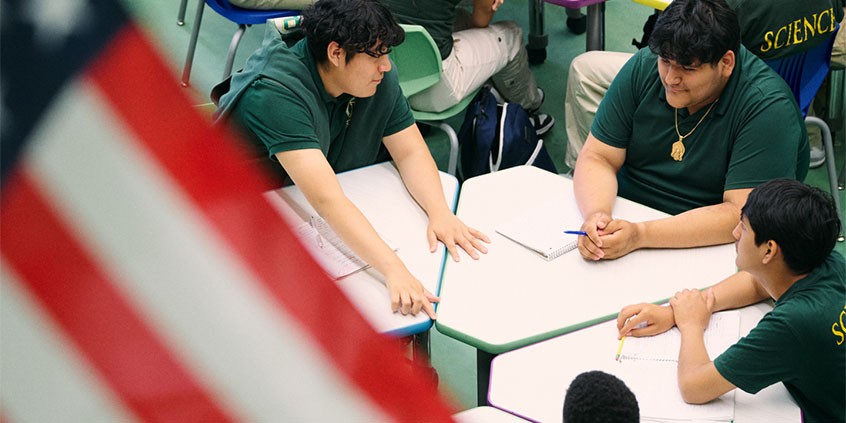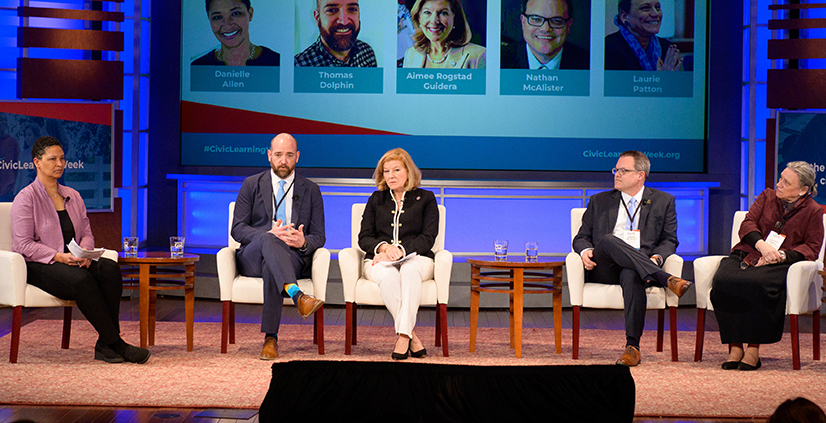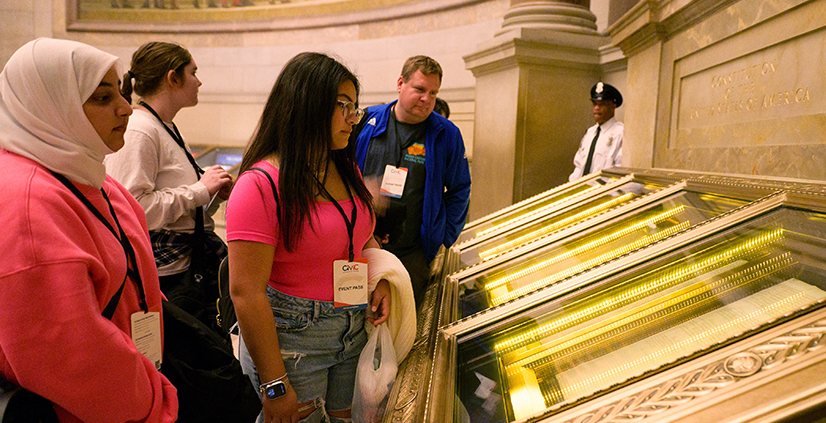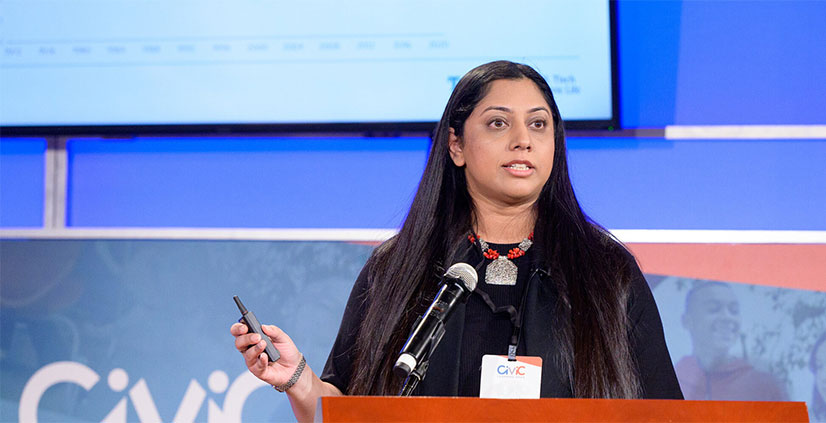|
STATE POLICY MENU
Strengthen Professional Development and Preservice Training for Civic Education


Challenge
The lack of uniform undergraduate preservice requirements in civics, law, history, government, and political science means that many teachers assigned to civics classes may be ill-equipped to help students master the knowledge and skills essential for informed and engaged civic participation. What’s more, related professional development is underfunded and often cost-prohibitive for teachers in terms of time and money (AEI, 2015).
Solution
Strengthen preservice requirements for civics teachers by requiring undergraduate courses in government and U.S. history, as well as undergraduate coursework in the unique methods of teaching history and civics. K–12 teachers across subject areas also need ongoing professional development to deepen content expertise, develop culturally responsive competencies, and build capacity to incorporate practices of constitutional democracy and student agency into classrooms. (See state policy options under “Encourage and Acknowledge Student Excellence and Participation in Civics.”)
State Policy Options
Preservice:
- Require, at a minimum, undergraduate courses in government and U.S. history.
- Revise social studies certification examinations to include more rigorous civics and U.S. history content to ensure that each prospective teacher has fundamental knowledge of the subjects.
- Consider requiring government and U.S. history coursework for all K–12 teachers, especially those in grades K–5 charged with social studies instruction.
- Ensure professional development opportunities within and across networks of Local Education Agencies (LEAs), allowing communities of practice to form and flourish locally and regionally.
Ongoing Professional Development: Provide adequate resources for ongoing, comprehensive, evidence-based educator professional development in order to:
- strengthen civics and history content knowledge;
- practice instructional strategies to facilitate engaged and effective learning;
- provide exposure to a wide array of vetted curriculum and resources for classroom implementation;
- ensure school and district policies and daily practices related to school culture and student discipline reflect democratic ideals and principles; and
- encourage and create opportunities for interdisciplinary collaboration to allow educators to work together to integrate civics and U.S. history with English, language arts, math, science, and more.
Related Challenge
Reports suggest static or even declining enrollment among students of color in pre-service teaching programs, and a higher percentage of teachers of color leaving the profession altogether within the first five years of their careers (Brown Center, 2018).
State Policy Options:
- Look for innovative ways to diversify the teacher pool, actively recruiting and working to retain teachers of color in the ranks of social studies educators.
- Implement a fellowship to incentivize college graduates of color with social science and humanities degrees to join the teaching profession.
Case Study: Illinois Democracy Schools
Illinois Democracy Schools are secondary schools recognized for providing students with authentic experiences in the rights, responsibilities, and tensions inherent in living in a constitutional democracy. Through these experiences, students are equipped with the knowledge, skills, and dispositions necessary for informed, effective engagement in our democracy.
Related Resources:
- Illinois Civic Blueprint, from the Robert R. McCormick Foundation.
- Video: A look at how Chicago’s George Washington High School raised its achievement through an emphasis on civic learning across the school.
Example
In the 2024–25 budget, the Michigan Senate Appropriations Committee agreed to include $5 million in funding for professional development in the School Aid Budget. View Committee language.
Resources
- Model bill language
- State-specific K–12 civic learning profile
- Civic Education Professional Development: The Lay of the Land
(American Enterprise Institute, 2015) - The 2018 Brown Center Report on American Education: How Well Are American Students Learning?
For one-to-one support and/or technical assistance, please contact our state policy staff.






